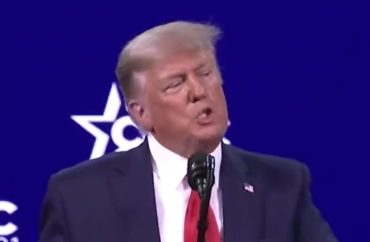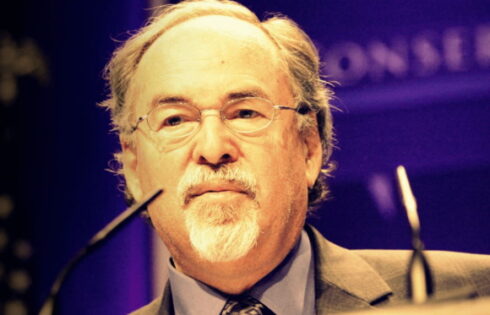
Only a handful of colleges have significant endowments
President Donald Trump has suggested taxing the endowments of large private universities to pay for a free, online “American Academy.”
Increasing the tax on endowments has won support from other Republicans and conservatives.
The College Fix surveyed several policy experts to discuss the pros and cons of the idea.
“While an endowment tax might affect how a small group of colleges operate, most students attend schools that would see little to no impact from a heavier endowment tax,” Preston Cooper, a senior fellow with the Foundation for Research on Equal Opportunity, told The Fix via email.
This is because most “university endowment wealth belongs to just 120 universities, even though there are thousands of colleges nationwide,” Cooper said.
According to Cooper, the 1.4% tax from President Trump 2017 Tax Cuts and Jobs Act “raised 68 million” from 33 institutions.
He said universities might adjust behavior to avoid paying more in taxes, such as spending more on financial aid or increasing enrollment.
“For instance, if the [heavier] tax only applied to schools with endowments greater than a certain dollar amount per student, colleges might try to increase their enrollment in order to stay below the taxation threshold,” Cooper said. “I’ve seen other proposals to give universities a break from the endowment tax if they spend more on financial aid.”
Ben Ritz with the Progressive Policy Institute said taxing universities to push them to spend more on students is a good idea, but it won’t work as a way to raise significant revenue.
“The funding of this academy is nonsense. Trump wants to establish an online university using revenue from endowment tax,” Ritz, who directs the think-tank’s funding research projects, told The Fix in a phone interview. “The current endowment tax raises about 70 million a year, yet many online universities have multi-billion-dollar budgets. This tax would only raise a small fraction of a university’s costs.”
“It’s good tax policy to push universities with large endowments to use the money for real, educational purposes, but this particular scheme is ridiculous, and it is not a significant source of revenue for the government,” Cooper said.
MORE: Harvard fails to get endowment tax repealed
A former economics professor who studies college affordability said the reason for not taxing universities has diminished.
Richard Vedder, a senior fellow with the Independent Institute and former economist at Ohio University, said the general idea behind not taxing universities was that they provided “positive externalities.”
“The argument always was that there were benefits of higher education that were unusual,” Vedder told The Fix during a phone interview. He gave examples of how a college educated worker would model discipline and other business skills in the workplace and help improve his place of employment.
Now, “bad things [are] coming from universities,” Vedder told The Fix, mentioning the proliferation of “diversity, equity, and inclusion” initiatives. He made similar arguments in a December Wall Street Journal piece.
He said there are arguments for both sides, but it is worth discussing “taxing universities instead of subsidizing them.”
Trump’s motive for the tax is that universities have pushed left-wing ideologies.
“We spend more money on higher education than any other country, and yet they’re turning our students into communists and terrorists and sympathizers of many, many different dimensions, Trump stated in a video announcing his idea.
A senior policy analyst at the Tax Foundation suggested looking into how “tax-exempt institutions are taxed more broadly” rather than focusing on “specific sources of exempt income.”
“One concern related to taxing university endowments would be how that impacts a university’s ability to provide financial aid to students or support education-related efforts more broadly,” Garrett Watson told The Fix via email. “A counterargument is that this may not change university behavior significantly given that endowment taxes are often targeted at large endowments of universities who are well capitalized to address student needs.”
Changing the tax code broadly instead of just looking at university endowments “would be simpler and help bypass politically fraught issues surrounding the latter approach.”
The Fix also reached out twice to Open the Books, the Heritage Foundation, the Brookings Institute, and the American Enterprise Institute for comment, but none responded.
MORE: Tax universities to pay for student loan bailout, policy analyst argues
IMAGE: CSPAN
Like The College Fix on Facebook / Follow us on Twitter






Please join the conversation about our stories on Facebook, Twitter, Instagram, Reddit, MeWe, Rumble, Gab, Minds and Gettr.